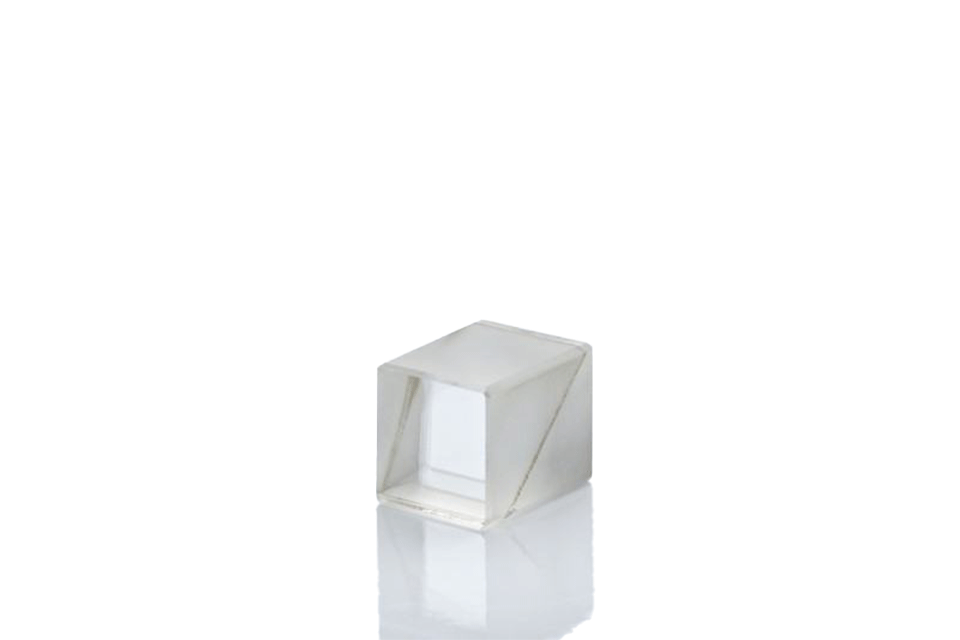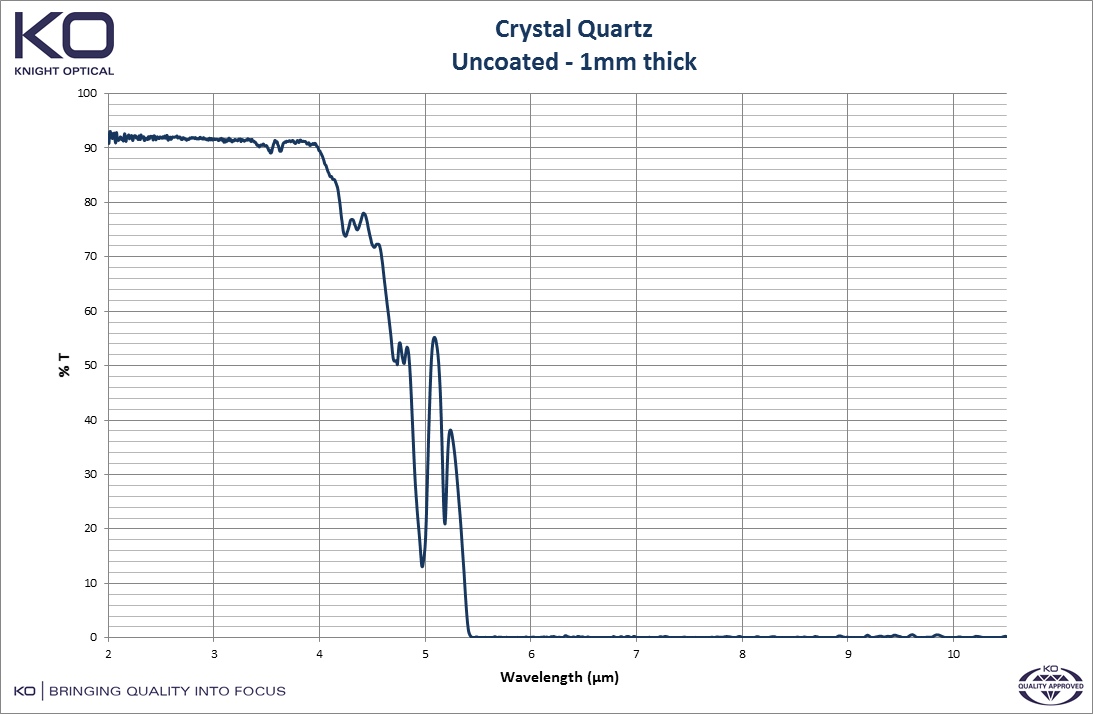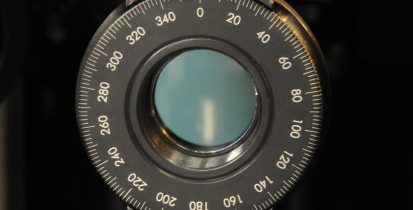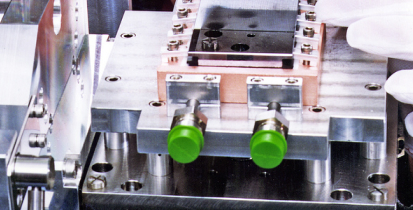

Stock Available
Bespoke Ordering Available
Contact us now
Find out more about our custom crystal quartz
Call +44 (0)1622 859444 Call +1 401 583 7846
Knight Optical supplies high-quality crystal quartz optical components, such as windows, prisms, waveplates, and beamsplitters for your custom specifications. We offer both uncoated and coated optics, including broadband antireflective (BBAR) coatings for the specific crystal quartz price and properties requirements of our clients.
Crystalline Quartz (SiO2), also known as optical quartz crystal, is a naturally occurring birefringent material boasting an impressive array of optical properties. Crystal quartz’s properties make it an ideal substrate for a multitude of applications due to its:
- Birefringence
- High purity
- Insolubility in water
- High damage threshold
- Ability to rotate plane polarised light
Our typical manufacturing specifications cover a wide range of crystal quartz optics needs, yet we are continually expanding our capabilities to accommodate even the most unique requests.
Whether you’re inquiring about our crystal quartz price, crystal quartz uses, or specific crystalline quartz optical properties, please contact our technical sales team, who are ready to guide you through your enquiry with expert advice and support.

Speak to our experts about your Custom Crystal Quartz needs today
Call +44 (0)1622 859444 Call +1 401 583 7846Make a quick enquiry about Custom Crystal Quartz Now
Dive into the forefront of optical solutions. Got questions about an optical product? Reach out now and let our expertise guide you.
Optical Properties of Crystal Quartz
Crystal quartz’s optical properties, including the crystalline quartz index of refraction and refractive index, are what set itcrystalline quartz apart within optics. Crystal quartz uses span across various industries, leveraging its crystal quartz optical properties for improved performance and efficiency.
With our in-house state-of-the-art metrology laboratory, we guarantee that your optical quartz crystal components will meet your exact crystal quartz optical properties requirements. Discover more about our testing facilities here.
Below is a brief summary of crystal quartz’s optical properties.
| Diameter | < 5mm to 80mm + |
|---|---|
| Form error (@633nm) | < 0.25 waves |
| Centration/parallelism | < 1 arc minute |
| Scratch/dig | < 20/10 |
|---|---|
| Typical coatings | BBAR @ 1-2.5µm, DLC @ 1-2.5µm |

Frequently Asked Questions
-
What is crystal quartz and what are its key properties?
-
Crystal quartz, also known as crystalline quartz, is a natural mineral renowned for its optical and physical properties, including high purity, durability, and chemical stability. Key properties include excellent transparency across a wide range of wavelengths, from ultraviolet to infrared, making it valuable in optical applications. Crystal quartz also exhibits significant piezoelectric properties, where it generates an electric potential upon mechanical stress, and vice versa.
-
What are the optical properties of crystal quartz that make it suitable for optical applications?
-
The optical properties of crystal quartz that make it highly suitable for optical applications include its high transparency over a broad spectral range, low coefficient of thermal expansion, and strong resistance to scratching and chemicals. Additionally, its birefringence, or ability to split light into two polarized rays, makes it ideal for polarizing prisms, waveplates, and other precision optical components in devices like lasers, microscopes, and cameras.
-
How is crystalline quartz used in optical systems?
-
Crystalline quartz is used in optical systems for various components, such as lenses, windows, prisms, and waveplates, particularly where high purity and stability are required. Its excellent transmission properties and birefringence are leveraged in polarization optics, while its durability and resistance to high temperatures and radiation make it suitable for harsh environments.
-
What is the index of refraction and refractive index of crystalline quartz?
-
The index of refraction for crystalline quartz varies with wavelength but is typically around 1.54 at 589 nm (the sodium D line). This property, combined with its birefringence, allows for precise control of light paths in optical systems, contributing to the material’s widespread use in scientific and industrial applications.
-
Where can I find crystal quartz optical components for my project?
-
Crystal quartz optical components can be sourced from specialized suppliers like Knight Optical, which offers a range of high-quality quartz products, including lenses, windows, prisms, and waveplates. Knight Optical can provide both standard and custom quartz optical components tailored to meet specific application requirements, ensuring optimal performance and quality.
-
What factors affect the price of crystal quartz, and how can I obtain cost-effective optical components?
-
The price of crystal quartz can vary based on factors such as purity, size, complexity of the component, and market demand. High-quality, pure crystal quartz typically commands a higher price, particularly for optical-grade materials. To obtain cost-effective optical components, consider specifying your requirements clearly and consulting with suppliers like Knight Optical, who can offer competitive prices for both off-the-shelf and custom-fabricated quartz components, ensuring you get the best value for your specific optical needs.
Is your question not here?
We are ready and waiting to answer any queries you may have about crystal quartz.
Additional Information
Birefringence
Birefringence is when there are two distinct refractive indices of a material. This occurs when an unpolarised light beam enters the input surface of the material, it will be split into two polarised beams—the ordinary (o) and extraordinary (e) waves. Quartz’s o-and e-ray refractive indices are 1.54221 and 1.55333 respectively (@600nm).
Crystalline quartz
Crystalline quartz transmits at 90% between 0.18-3.5µm so can be used for UV to NIR applications.
Terahertz
It also transmits above 50µm, which goes into the Terahertz region (3mm down to 30µm). This is used for blackbody emission.
Left- and right-handed
Crystal quartz is split into left-handed and right-handed types based on the optical rotation of the linearly polarised which enters it.
Thermal Expansion
Due to its low thermal expansion, it is a good substrate for precision mirrors.
Considerations
Temperature
Crystal quartz should be used at temperatures below 490°C.
Quartz and Fused Silica Differences
There is some confusion between quartz and fused silica. Quartz is made from naturally occurring crystalline quartz which is melted and purified. Fused silica, on the other hand, is entirely synthetic, with enhanced performance in the UV region.
Docs & drgs
Available Stock

Get in touch with us:
With our in-house state-of-the-art metrology laboratory you can be confident that your optical components will meet your requirements. You can find out more about our testing facilities here.

Operating for over 30 years
Knight Optical has been operating for over 30 years, with our managing director Colin Overton at the helm. Over this time, we have become a global leader in the production and distribution of scientific optical components and bringing quality into focus for all of our products and services that we provide.
Our 2022/2023 Catalogue
Inside Knight Optical’s catalogue you’ll find details of the industries we serve as well as the many other services we can offer. It also showcases hundreds of our most popular products, supported by useful technical information, to help you choose the right part for your application.
Click below to view our digital catalogue now.


